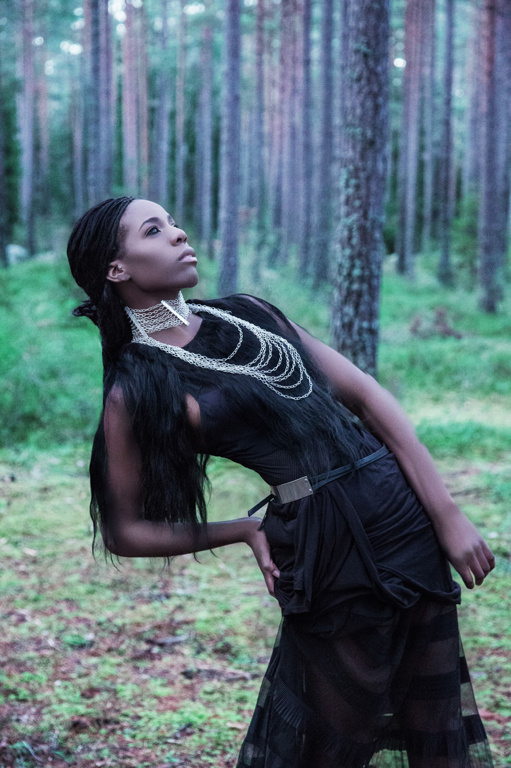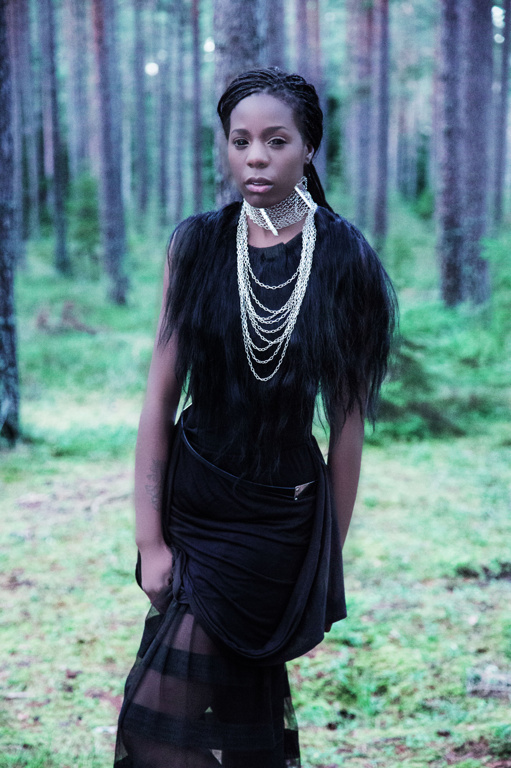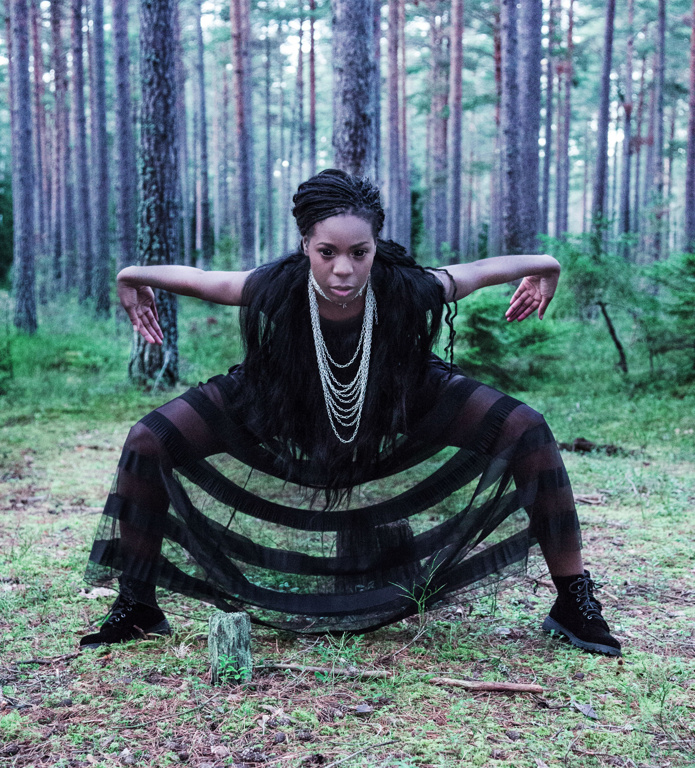Pheeyownah (pronounced Fiona) is Feyona Naluzzi, a singer-songwriter and performer from Stockholm, Sweden. If you’re familiar with the Swedish dance activist group JUCK, Pheeyownah’s face might be familiar. If not, hopefully it will, as she slowly but safely penetrates the global electronic music scene and conquers the many challenges that lay ahead. And why wouldn’t she – her unique style and organic creativity place her in the same group with Robyn, Bjork and HK112.
Pheeyownah’s grip over her creative concept is tight, and though at first it might seem as if she’s sporting a leisure eccentricity, a closer inspection reveals that such control is an absolute must. The DIY-attitude she nourishes is a means and a necessity for an artist who wishes to be free to create exactly what she wants and avoid blending into the background along with the likes of many female artists whose artistry is too often reduced to a merely ornamental function.
Pheeyownah takes gender seriously and her approach is thorough, she goes beyond the mere visual imagery as she explores the alternative ways of vocal production and flirts with genderbending. Though her electronic ballads with complex rhythm sections and rich vocal layers are bound to please aficionados of the grand mystical, it’s safe to say she’s not your typical sweet angelic fairy voice girl.
Apart from the rather simple demands that the market imposes on artists to create profitable music, what possible challenges can lay ahead of such a talented and young musician? If we’re to call ourselves observers and/or guardians of cultural landscapes, we must face reality fearlessly. And the purpose of this reality check is far from instigating a beef with anything in particular, but rather to become aware of the power anchors in the industry that influence our cultural environments.
Electronic music is hardly something new. The birth of it is symbolically marked with the invention of the first electronic instrument ever, the telharmonium, dating as far back as in 1902, which makes electronic music a century old discipline. If any discipline could even be seen independently from the rest of the cultural narratives, we could start out by saying that we’ve roughly had more than a decade time to make things right. But we can’t say that with a straight face, can we?
In 2010, Lina Thomsgård (who founded Rattviseformedlingen aka Equalisters in English) called out a club in Stockholm for hosting only men DJs, and presented them with a list of equally competent female DJs. The list was crowdsourced – and after the list was handed over to the club owner, no one could argue female DJs were non-existent. Still, the exclusivity continues. In 2013, DJ Mag issues a list of top 100 DJs in the world. The whole world. One look at it will have your eyes scrolling down endlessly in disbelief for having only two female acts out of a hundred acts altogether. The angle at which the world spins is notorious for it’s selective gravity, and many simply know that talent, hard work and even eagerness to succeed are sometimes just not enough, no matter how much we think the world has changed. Linda Nochlin’s essay ‘Why Have There Been No Great Women Artists’ (1971) is easily translated into a question – why have there been no great women electronic music acts? Has there really been none? The public doesn’t know enough about the founding pioneers Delia Derbyshire, Daphne Oram and many others.
Our lives, clearly intersected by various forms of prejudice, are hardly hopeless despite the way the world is wired. What matters at the end is what each and every one of us does with the information we have. Merely calling people out as racist, homophobic or misogynist hardly does the trick. Sure, we shame these people openly, and often sanctions will follow, but only changing the language doesn’t cure these social ills.
By the look of things, unless there appears a consistent resistance to the systems that shun woman away from circles where they can achieve the status of high-end top notch female electronic musicians, female producers are destined to reside in obscure areas far away from the eyes of the wide public. We all have work to do and things are far from hopeless. We’ve had Bjork, Grimes, Ellen Allien, Robyn, M.I.A, ISA GT, many more and now we also have Pheeyownah.
Words by Ravijojla Novakovic
Photos by Danyel Mejia
Original article appeared on stocktown.com (4th April 2014)
For more info visit Pheeyownah’s website, YouTube channel or follow her on Facebook & Twitter







